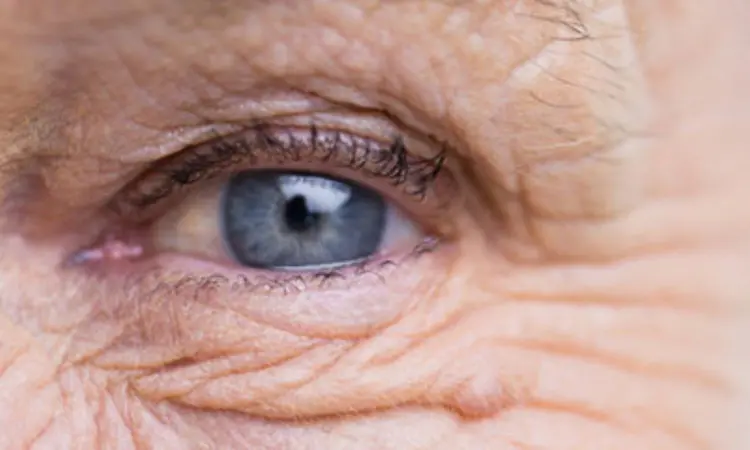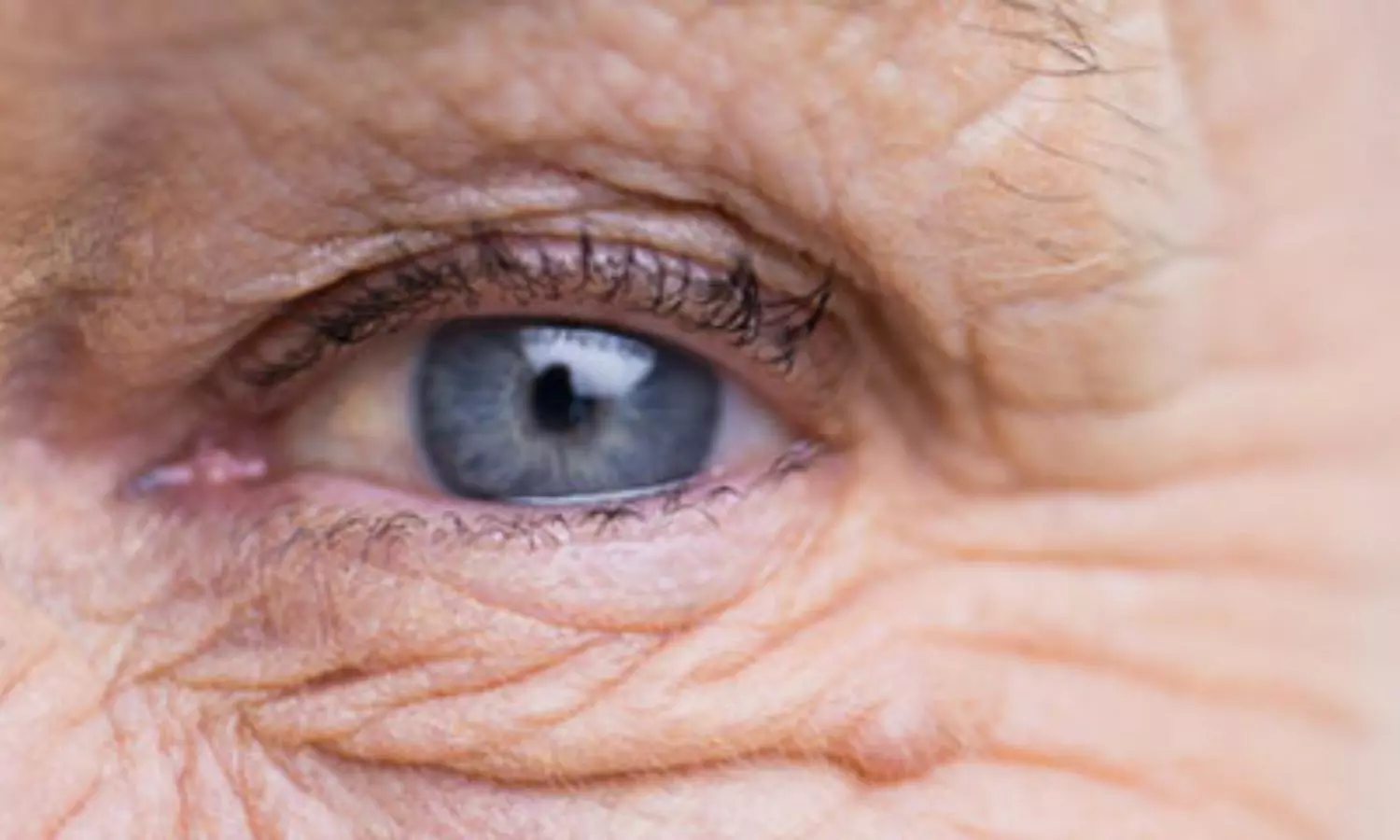- Home
- Medical news & Guidelines
- Anesthesiology
- Cardiology and CTVS
- Critical Care
- Dentistry
- Dermatology
- Diabetes and Endocrinology
- ENT
- Gastroenterology
- Medicine
- Nephrology
- Neurology
- Obstretics-Gynaecology
- Oncology
- Ophthalmology
- Orthopaedics
- Pediatrics-Neonatology
- Psychiatry
- Pulmonology
- Radiology
- Surgery
- Urology
- Laboratory Medicine
- Diet
- Nursing
- Paramedical
- Physiotherapy
- Health news
- Fact Check
- Bone Health Fact Check
- Brain Health Fact Check
- Cancer Related Fact Check
- Child Care Fact Check
- Dental and oral health fact check
- Diabetes and metabolic health fact check
- Diet and Nutrition Fact Check
- Eye and ENT Care Fact Check
- Fitness fact check
- Gut health fact check
- Heart health fact check
- Kidney health fact check
- Medical education fact check
- Men's health fact check
- Respiratory fact check
- Skin and hair care fact check
- Vaccine and Immunization fact check
- Women's health fact check
- AYUSH
- State News
- Andaman and Nicobar Islands
- Andhra Pradesh
- Arunachal Pradesh
- Assam
- Bihar
- Chandigarh
- Chattisgarh
- Dadra and Nagar Haveli
- Daman and Diu
- Delhi
- Goa
- Gujarat
- Haryana
- Himachal Pradesh
- Jammu & Kashmir
- Jharkhand
- Karnataka
- Kerala
- Ladakh
- Lakshadweep
- Madhya Pradesh
- Maharashtra
- Manipur
- Meghalaya
- Mizoram
- Nagaland
- Odisha
- Puducherry
- Punjab
- Rajasthan
- Sikkim
- Tamil Nadu
- Telangana
- Tripura
- Uttar Pradesh
- Uttrakhand
- West Bengal
- Medical Education
- Industry
Aflibercept 8mg noninferior to Aflibercept 2mg in nAMD Treatment: PULSAR Trial

New research revealed that aflibercept 8 mg was non-inferior to aflibercept 2 mg and provided more significant therapeutic benefit, prolonged injection interval, and similar safety compared to aflibercept 2 mg. The study was presented at the 2023 ARVO Annual Meeting and published in the journal Investigative Ophthalmology and Visual Science.
Neovascular age-related macular degeneration, also known as exudative or wet AMD is a common, progressive retinal degenerative macular disease that is characterized by neovascularization of the choroid, mainly affecting the elderly population leading to gradual vision impairment. Anti-VEGF is the main modality of the treatment of nAMD. Aflibercept, a 115 kDa completely human recombinant fusion protein that binds to VEGF-A, VEGF-B, and placental growth factor (PlGF), is made up of the immunoglobulin binding domains of VEGF receptors 1 and 2. Recent literature has shown that aflibercept 2mg can be used for naïve neovascular age-related macular degeneration (nAMD). Hence researchers conducted a trial to evaluate the efficacy and safety of intravitreal aflibercept 8 mg injection administered every 12 (8q12) or 16 weeks (8q16) for the management of treatment-naïve neovascular age-related macular degeneration (nAMD).
PULSAR trial is an ongoing, double-masked, 96-week, Phase 3 trial that recruited patients aged ≥50 years with nAMD. Participants were randomly assigned 1:1:1 to receive 8q12, 8q16, or 2q8 of aflibercept 8 mg injection and 2mg injection. The best-corrected visual acuity (BCVA) change from baseline and measured at Week 48 by a non-inferiority margin at four letters was considered as the primary endpoint. The key secondary endpoint was the proportion of patients with no intraretinal/subretinal fluid (IRF/SRF) in the central subfield at Week 16, and other secondary endpoints included safety. The proportion of patients with ≥12-week and 16-week treatment intervals through Week 48 was the Exploratory endpoint.
Results:
- Nearly 1009 patients with a mean±SD age of 74.5±8.4 years () were evaluated, of which there were 54.5% female.
- There were 335 in the 8q12 group, 338 in the 8q16 group, and 336 in the 2q8.
- Aflibercept 8 mg met the primary endpoint (8q12 vs. 2q8: p=0.0009; 8q16 vs. 2q8: p=0.0011).
- Observed mean (±SD) change from baseline (±SD) in BCVA at Week 48 was +6.7±12.6, +6.2±11.7, and +7.6±12.2 letters with 8q12, 8q16, and 2q8, respectively.
- In the 8q12 group, 79% of patients (n=316) maintained 12-week treatment intervals, and 77% of patients in the 8q16 group (n=312) maintained 16-week treatment intervals in Year 1.
- Overall, 83% (n=628) of patients receiving aflibercept 8 mg maintained ≥12-week treatment intervals in Year 1.
- Aflibercept 8 mg demonstrated superior drying versus aflibercept 2 mg at Week 16; 63% versus 52% of patients, respectively, had no IRF/SRF in the central subfield (p=0.0002).
- Aflibercept 8 mg had a similar safety profile to aflibercept 2 mg.
Thus, Aflibercept 8 mg was safe, and efficacious and was maintained by the patients for ≥12-week dosing, and 16-week dosing than Aflibercept 2 mg.
Further reading: Intravitreal aflibercept 8 mg injection in patients with neovascular age-related macular degeneration: 48-week results from the Phase 3 PULSAR trial. Invest. Ophthalmol. Vis. Sci. 2023;64(8):461.
BDS, MDS
Dr.Niharika Harsha B (BDS,MDS) completed her BDS from Govt Dental College, Hyderabad and MDS from Dr.NTR University of health sciences(Now Kaloji Rao University). She has 4 years of private dental practice and worked for 2 years as Consultant Oral Radiologist at a Dental Imaging Centre in Hyderabad. She worked as Research Assistant and scientific writer in the development of Oral Anti cancer screening device with her seniors. She has a deep intriguing wish in writing highly engaging, captivating and informative medical content for a wider audience. She can be contacted at editorial@medicaldialogues.in.
Dr Kamal Kant Kohli-MBBS, DTCD- a chest specialist with more than 30 years of practice and a flair for writing clinical articles, Dr Kamal Kant Kohli joined Medical Dialogues as a Chief Editor of Medical News. Besides writing articles, as an editor, he proofreads and verifies all the medical content published on Medical Dialogues including those coming from journals, studies,medical conferences,guidelines etc. Email: drkohli@medicaldialogues.in. Contact no. 011-43720751



